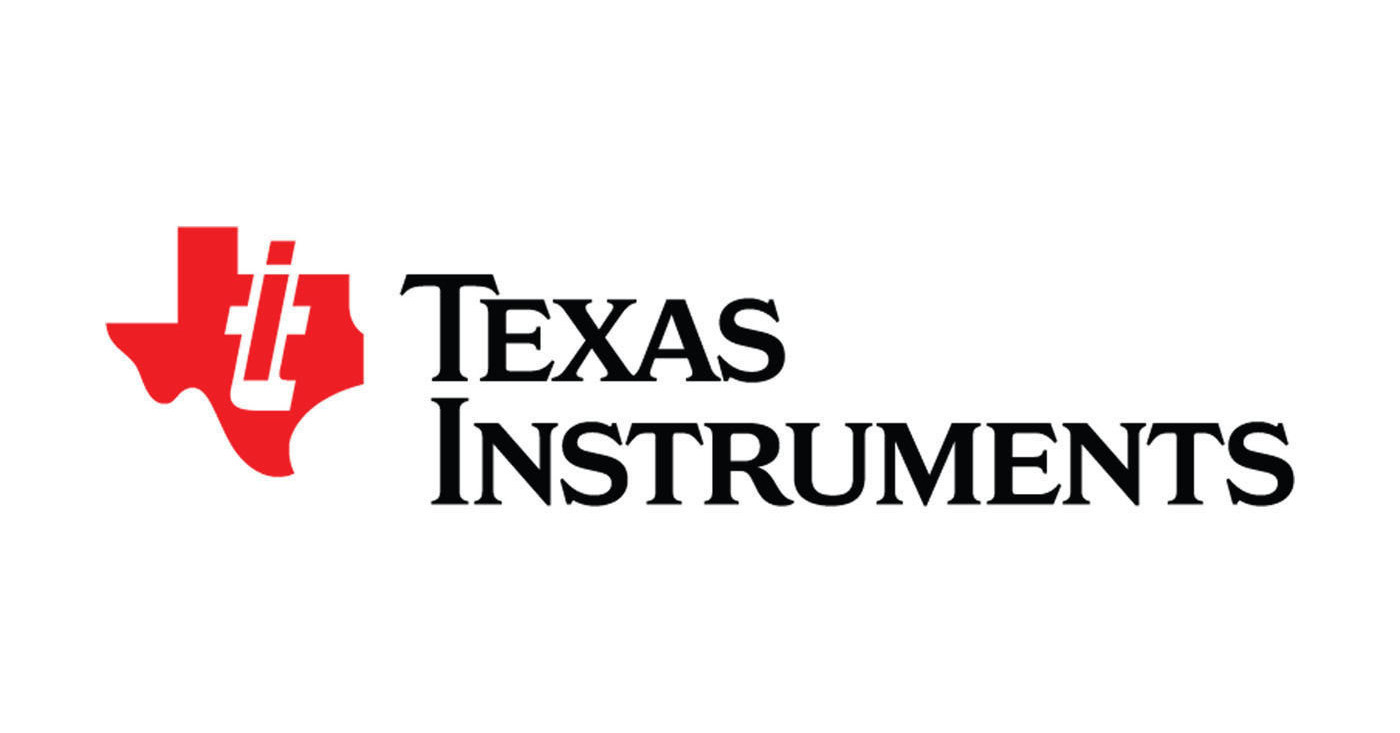Texas Instruments' Q4 Preview

Analysts at Deutsche Bank provided their views on Texas Instruments Incorporated (NASDAQ:TXN) ahead of the company’s Q4 results, expected to be reported on January 25. The analysts expect the company to deliver another revenue beat and raise, albeit with the size of that beat/raise once again smaller than the large beats the company delivered throughout much of 2021.
On the demand front, the analysts expect the company to provide incremental color around customer behavior patterns, with particular commentary around expedite/cancellation trends, the pervasiveness of hotspots, and any signs of a slowdown in demand or increase in "customer selectivity".
| Symbol | Price | %chg |
|---|---|---|
| AMD.BA | 20975 | 0 |
| TXN.BA | 52100 | 0 |
| 000660.KS | 273500 | 0 |
| LRCX.BA | 2560 | 0 |

Texas Instruments Tops Q2 Estimates But Shares Fall 11% on Cautious Outlook
Texas Instruments (NASDAQ:TXN) reported better-than-expected second-quarter results, fueled by a recovery in its key industrial segment. However, a cautious third-quarter outlook prompted an 11% drop in the stock in after-hours trading.
Q2 revenue climbed 16% year-over-year to $4.45 billion, landing at the high end of the company’s guidance and surpassing analyst expectations of $4.35 billion. Earnings per share came in at $1.41.
The company noted a 9% sequential revenue gain, driven by a “continued broad recovery in industrial,” its largest end market. Net income for the quarter totaled $1.30 billion.
Looking ahead, Texas Instruments guided Q3 revenue in the range of $4.45 billion to $4.80 billion and EPS between $1.36 and $1.60. This compares with the Street forecast of $4.55 billion in revenue and $1.49 EPS, suggesting a cautious view on the pace of demand recovery.

Texas Instruments Incorporated (NASDAQ:TXN) Price Target and Financial Outlook
- Timothy Arcuri from UBS set a price target of $255 for NASDAQ:TXN, indicating a potential increase of 18.84%.
- Analysts predict an earnings increase to $1.33 per share for the second quarter, up from $1.22 per share the previous year.
- The company's projected quarterly revenue is expected to reach $4.32 billion, an increase from $3.82 billion a year ago.
Texas Instruments Incorporated (NASDAQ:TXN) is a leading semiconductor company known for its innovative technology solutions. The company designs and manufactures semiconductors and various integrated circuits, which are used in electronics across industries. Texas Instruments competes with other major players in the semiconductor industry, such as Intel and Qualcomm.
On July 22, 2025, Timothy Arcuri from UBS set a price target of $255 for TXN. At the time, the stock was priced at $214.57, suggesting a potential increase of 18.84%. This optimistic outlook comes as Texas Instruments prepares to release its second-quarter earnings results, which are expected to show growth.
Analysts predict that Texas Instruments will report earnings of $1.33 per share for the second quarter, up from $1.22 per share in the same period last year. The company's projected quarterly revenue is expected to reach $4.32 billion, an increase from $3.82 billion a year ago. These figures indicate a positive trend in the company's financial performance.
Despite these positive expectations, Texas Instruments' shares experienced a slight decline of 1%, closing at $214.57 on Monday. The stock has traded between a low of $214.21 and a high of $219 today. Over the past year, the stock has reached a high of $221.69 and a low of $139.95, reflecting some volatility in its price.
Texas Instruments has a market capitalization of approximately $194.93 billion, indicating its significant presence in the semiconductor industry. The trading volume for the day is 8,217,255 shares, showing active investor interest. Additionally, the company's board of directors announced a quarterly cash dividend of $1.36 per share, highlighting its commitment to returning value to shareholders.

Texas Instruments (NASDAQ:TXN) Quarterly Earnings Preview
- Expected Earnings Per Share (EPS) is $1.06, with revenue projections at approximately $3.91 billion.
- The company faces challenges from the U.S.-China trade war and market slowdowns, yet has outperformed the Zacks Consensus Estimate in the past four quarters.
- Financial health indicators such as a P/E ratio of 27.67 and a current ratio of 4.12 suggest strong market valuation and liquidity.
Texas Instruments (NASDAQ:TXN) is a leading semiconductor company known for its analog and embedded processing products. As it prepares to release its quarterly earnings on April 23, 2025, analysts are closely watching the company's performance. The expected earnings per share (EPS) is $1.06, while revenue is projected to be around $3.91 billion.
The company's anticipated EPS range is between 94 cents and $1.16, with the Zacks Consensus Estimate aligning at $1.06. This marks an 11.7% decline from the previous year. Despite this, revenue expectations show a positive trend, with a projected increase of 6.7% from the same period last year, ranging between $3.74 billion and $4.06 billion.
Texas Instruments faces challenges from the ongoing U.S.-China trade war and tariff hikes, which may impact its performance. Additionally, a slowdown in industrial and automotive markets could affect its earnings. However, the company has a strong track record, consistently surpassing the Zacks Consensus Estimate in the last four quarters with an average surprise of 8.9%.
The company's financial metrics provide insight into its market valuation. With a price-to-earnings (P/E) ratio of 27.67 and a price-to-sales ratio of 8.47, Texas Instruments is valued highly by the market. Its enterprise value to sales ratio is 9.14, and the enterprise value to operating cash flow ratio is 22.62, indicating robust financial health.
Texas Instruments maintains a solid liquidity position, with a current ratio of 4.12, reflecting its ability to cover short-term liabilities. The debt-to-equity ratio of 0.80 shows moderate financial leverage. These metrics, combined with an earnings yield of 3.61%, highlight the company's financial stability and potential for future growth.

Texas Instruments (NASDAQ:TXN) Quarterly Earnings Preview
- Expected Earnings Per Share (EPS) is $1.06, with revenue projections at approximately $3.91 billion.
- The company faces challenges from the U.S.-China trade war and market slowdowns, yet has outperformed the Zacks Consensus Estimate in the past four quarters.
- Financial health indicators such as a P/E ratio of 27.67 and a current ratio of 4.12 suggest strong market valuation and liquidity.
Texas Instruments (NASDAQ:TXN) is a leading semiconductor company known for its analog and embedded processing products. As it prepares to release its quarterly earnings on April 23, 2025, analysts are closely watching the company's performance. The expected earnings per share (EPS) is $1.06, while revenue is projected to be around $3.91 billion.
The company's anticipated EPS range is between 94 cents and $1.16, with the Zacks Consensus Estimate aligning at $1.06. This marks an 11.7% decline from the previous year. Despite this, revenue expectations show a positive trend, with a projected increase of 6.7% from the same period last year, ranging between $3.74 billion and $4.06 billion.
Texas Instruments faces challenges from the ongoing U.S.-China trade war and tariff hikes, which may impact its performance. Additionally, a slowdown in industrial and automotive markets could affect its earnings. However, the company has a strong track record, consistently surpassing the Zacks Consensus Estimate in the last four quarters with an average surprise of 8.9%.
The company's financial metrics provide insight into its market valuation. With a price-to-earnings (P/E) ratio of 27.67 and a price-to-sales ratio of 8.47, Texas Instruments is valued highly by the market. Its enterprise value to sales ratio is 9.14, and the enterprise value to operating cash flow ratio is 22.62, indicating robust financial health.
Texas Instruments maintains a solid liquidity position, with a current ratio of 4.12, reflecting its ability to cover short-term liabilities. The debt-to-equity ratio of 0.80 shows moderate financial leverage. These metrics, combined with an earnings yield of 3.61%, highlight the company's financial stability and potential for future growth.

Texas Instruments Beats Q4 Estimates but Soft Guidance Weighs on Shares
Texas Instruments (NASDAQ:TXN) delivered stronger-than-expected fourth-quarter earnings and revenue, but its cautious guidance for the current quarter overshadowed the results, leading to a more than 4% drop in premarket trading.
For the quarter, the company reported earnings of $1.30 per share on revenue of $4.01 billion, surpassing analyst expectations of $1.21 per share and $3.9 billion in sales. Despite this solid performance, investors were unsettled by weaker forward-looking projections.
Chief Executive Officer Haviv Ilan highlighted significant challenges in the company's key automotive and industrial segments during the post-earnings call. Automotive chip sales faced "significant weakness," with slower-than-expected growth in China compared to the previous quarter. Meanwhile, the industrial division, responsible for chips used in factory automation, experienced "modest sequential declines," reflecting softening demand in key markets.
For the first quarter, Texas Instruments provided a subdued outlook, projecting earnings per share between $0.94 and $1.16 and revenue ranging from $3.74 billion to $4.06 billion. Both figures fall short of market expectations, with analysts forecasting $1.17 per share in earnings and $3.85 billion in revenue.

Texas Instruments Beats Q4 Estimates but Soft Guidance Weighs on Shares
Texas Instruments (NASDAQ:TXN) delivered stronger-than-expected fourth-quarter earnings and revenue, but its cautious guidance for the current quarter overshadowed the results, leading to a more than 4% drop in premarket trading.
For the quarter, the company reported earnings of $1.30 per share on revenue of $4.01 billion, surpassing analyst expectations of $1.21 per share and $3.9 billion in sales. Despite this solid performance, investors were unsettled by weaker forward-looking projections.
Chief Executive Officer Haviv Ilan highlighted significant challenges in the company's key automotive and industrial segments during the post-earnings call. Automotive chip sales faced "significant weakness," with slower-than-expected growth in China compared to the previous quarter. Meanwhile, the industrial division, responsible for chips used in factory automation, experienced "modest sequential declines," reflecting softening demand in key markets.
For the first quarter, Texas Instruments provided a subdued outlook, projecting earnings per share between $0.94 and $1.16 and revenue ranging from $3.74 billion to $4.06 billion. Both figures fall short of market expectations, with analysts forecasting $1.17 per share in earnings and $3.85 billion in revenue.

Texas Instruments Incorporated (NASDAQ:TXN) Surpasses Earnings Expectations
- Texas Instruments Incorporated (NASDAQ:TXN) reported earnings per share (EPS) of $1.30, beating the estimated $1.20, with revenue of approximately $4.01 billion, surpassing the $3.88 billion estimate.
- The company's stock price declined after the earnings forecast failed to meet market expectations, highlighting the importance of forward-looking guidance in influencing investor sentiment.
- Despite a cautious outlook and predictions of a market decline, options traders are showing optimism, with a significant increase in call options traded.
Texas Instruments Incorporated (NASDAQ:TXN) is a leading player in the semiconductor industry, known for designing and manufacturing analog and embedded processing chips. The company competes with other major semiconductor firms like Intel and Qualcomm. On January 23, 2025, TXN reported earnings per share (EPS) of $1.30, surpassing the estimated $1.20, and actual revenue of approximately $4.01 billion, exceeding the estimated $3.88 billion.
Despite these positive results, TXN's stock price declined after the earnings forecast failed to meet market expectations, as highlighted by Investopedia. The company's outlook for future earnings was less optimistic, leading to a drop in share value after the market closed. This reaction underscores the importance of forward-looking guidance in influencing investor sentiment.
The financial results for the fourth quarter of 2024 showed a net income of $1.21 billion, with EPS recorded at $1.30, including a 2-cent benefit not anticipated in the original guidance. Analysts from Citi have commented on the semiconductor sector, predicting a decline in overall market expectations due to weak estimates from analog chipmakers and decreased demand for personal computers. Specifically, they anticipate TXN's first-quarter forecast will fall short due to weak industrial demand.
Despite the cautious outlook, options traders are showing optimism, with 10,000 call options traded, double the usual intraday volume. The February 195 call is particularly popular, with many new positions being established. Historically, TXN has only seen its stock price rise in two of the last eight post-earnings sessions, indicating a pattern of volatility following earnings announcements.
TXN's financial metrics provide further insight into its market position. The company has a price-to-earnings (P/E) ratio of approximately 36.89, indicating the amount investors are willing to pay for each dollar of earnings. The price-to-sales ratio stands at about 11.65, reflecting the market's valuation of its revenue. Additionally, the enterprise value to sales ratio is around 12.41, suggesting how the market values the company's total worth relative to its sales. The debt-to-equity ratio is approximately 0.84, indicating a moderate level of debt relative to equity, while the current ratio of about 4.31 suggests a strong ability to cover short-term liabilities with short-term assets.







